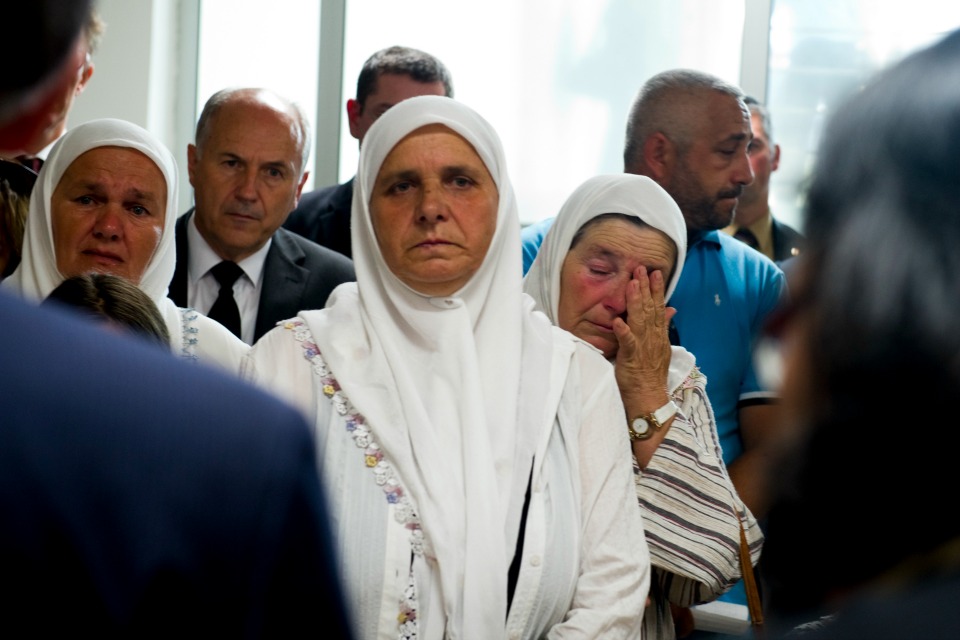"Russia’s actions tarnish the memory of all those who died in the Srebrenica genocide."
Statement by Ambassador Peter Wilson of the UK Mission to the UN at the Security Council Meeting on the Situation in Bosnia and Herzegovina

Thank you Mr President.
The United Kingdom is outraged that Russia has vetoed this resolution today. Russia’s actions tarnish the memory of all those who died in the Srebrenica genocide. Russia will have to justify its decision to the families of over 8,000 people murdered in the worst atrocity in Europe since the Second World War.
This draft resolution did not point fingers of blame, score political points nor did it seek to reopen painful divisions. It did not link the crimes of Srebrenica to the Serb people. And it recognised that there were victims on all sides. It aimed to send a clear message that this Council supports reconciliation in Bosnia.
But reconciliation, Mr President, must be based on a shared acceptance of the facts; that genocide occurred at Srebrenica. This is a legal fact, not a political judgement. On this there is no compromise.
So it is of profound regret that Russia has chosen to side with those who, by their actions, are preventing reconciliation moving forwards; those who are unwilling to accept the facts today.
Some said that in tabling this resolution, we risked ethnic division in the Balkans. The emotional responses in the region in the past weeks show that until past actions are acknowledged and accepted, we cannot move forward. As Adisada Dudic, said so poignantly at the commemorative event last week, “denial does not make the facts go away. It does not change the past. And it certainly does not erase memory.”
It is denial, and not this draft resolution, that will cause division. Denial is the final insult to the victims. It undermines the prospects for a secure, peaceful future for Bosnia and Herzegovina - a future that all of its citizens deserve.
Because, even two decades on, the horrors some choose to deny are still ongoing for families in Bosnia. The remains of hundreds of the victims of the genocide – fathers, sons, mothers and daughters - have yet to be found. The suffering of their loved ones, and their search for truth, continues to this day. Russia’s actions today will only exacerbate their grief.
Despite this veto, we must all continue our support for a peaceful, stable and prosperous future for Bosnia; a future based on an acceptance of the past.
Mr President,
Today was an opportunity for this Council to reflect on its responsibility to prevent genocide, both in 1995 and today and in the future.
This responsibility is made clear in our promise to save future “generations from the scourge of war”. And yet fifty years after the end of World War Two, fifty years after the signing of the UN Charter, we broke our promise, and allowed genocide to return to Europe… to a small town in Eastern Bosnia… to a UN-designated safe haven.
Kofi Annan said that “the tragedy of Srebrenica will forever haunt the history of the United Nations”. Russia’s veto shows that it is hard to lay those ghosts to rest. We must nevertheless continue to reflect on the lessons we have learnt as individuals, as countries, and as an organisation.
Twenty years on from Srebrenica, we now have an even greater set of tools to predict and prevent conflict and genocide. The High Commissioner for Human Rights, and the Special Advisors on Prevention of Genocide and Responsibility to Protect play vital roles. The Secretary-General’s Human Rights Up Front initiative and the new framework of analysis for atrocity crimes are welcome developments. And beyond the UN, we now have even greater access to information of impending conflict. We can see the signs of any slide toward genocide, through NGO’s, human rights monitors and social media.
But early warning is not early action, Mr President. We knew of the risks at Srebrenica. We saw the reports of ethnic cleansing, the signs of mass graves. We heard the reports from journalists in the field. And yet we did not act. The consequences of our inaction reverberate to this day.
Today, the risks of genocide and mass atrocities still lie beneath the surface – in South Sudan, in Syria, in the spread of ISIL. We cannot afford to repeat the mistakes of twenty years ago. We must act where we have early warning. We must find greater unity in this Council and use all of the tools at our disposal to do so.
Russia’s veto of this draft resolution shows just how difficult it can be to find this unity.
But we must persevere, Mr President. For it is the only way to make ‘never again’ a reality.
Thank you.